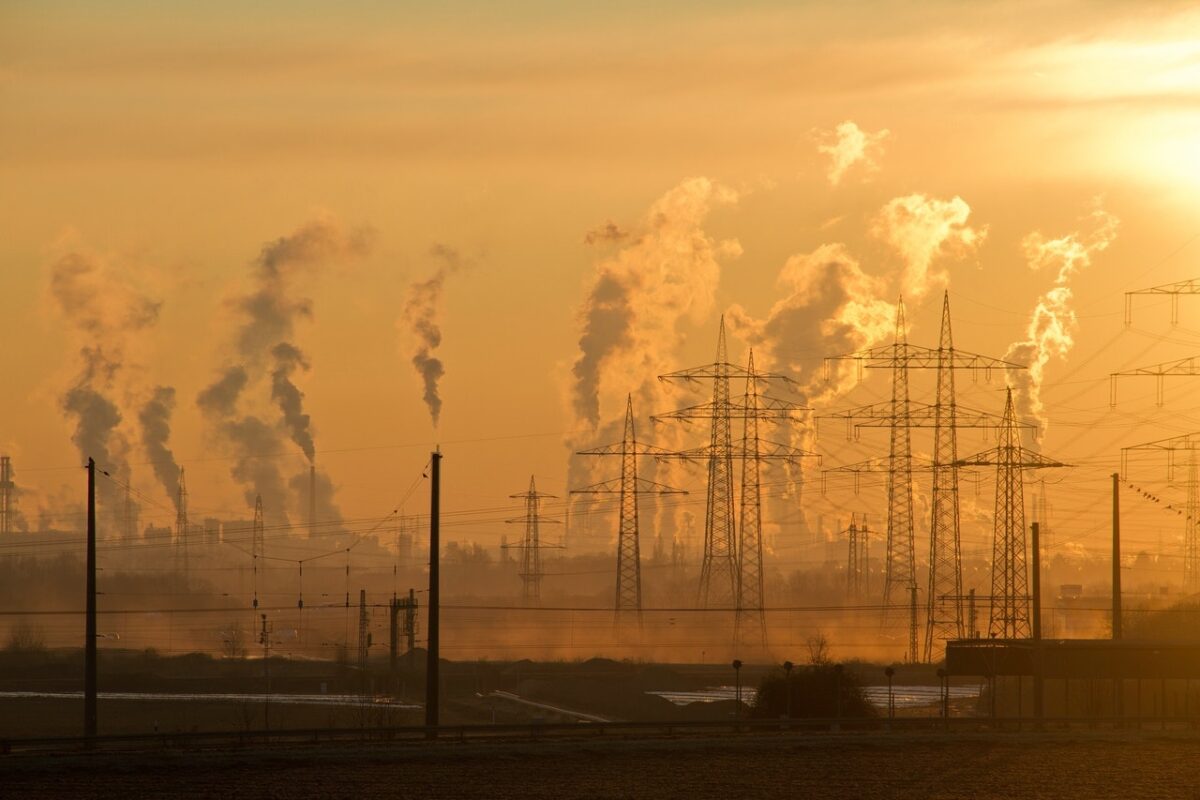Since the beginning of the Industrial Revolution, we have burned exceedingly more and more fossil fuels, pumping carbon dioxide (CO2), methane and other greenhouse gases (GHG) into the atmosphere. This activity also caused the greenhouse effect of global warming. Global warming is the gradual heating of the earth’s surface, oceans, and overall atmosphere.
Climate change is a long-term change in the average weather patterns and CO2 is the main reason for this transformation. Natural processes such as volcanic eruptions and respirations can also contribute to releasing carbon dioxide, but these are minor components compared to human activities such as land-use changes, deforestation and especially burning fossil fuels. Therefore, CO2 is a result of mostly human-induced activity, making us primarily responsible for climate change and any aftereffects. One of the major consequences of climate change has been the negative impact on our economy. Many industries, such as insurance and agriculture, have suffered financially because of this phenomenon. Insurance companies have to pay for the damages occurring in other sectors, and agriculture is affected by the increases in temperature as 30 percent of the world population is dependant on agriculture for their income.
By adopting an economic lens, this article aims to summarize how climate change is affecting our economy, and how essential it is to adhere to climate-friendly objectives and policies to achieve a lucrative and low-carbon economy.
The Positive Impacts of Climate Change
Agricultural Production
Due to warmer year-round temperatures and longer growing seasons, new crops such as oranges, grapes, and peaches flourish, leading to greater agricultural production. Some studies report that some crops and other plants are more drought-tolerant and grow better in the presence of higher CO2 levels. However, this benefit is a doubtful advantage because weeds, invasive plant species, and pests will also thrive in a warmer climate.
Reduction in Energy Bills
Now that projected warmer temperatures are on the rise during the winter months, hydro bills will also be substantially lower.
The Negative Impacts of Climate Change
Endangerment of Indigenous People and Their Land
Many Indigenous people are forced to relocate as their lands become uninhabitable due to climate change. For instance, in Newtok, a village in Alaska, melting ice means the whole settlement is sinking, and its highest point—a school standing at 20 feet tall—could be underwater soon.
Forest Fires
The two major ways in which climate change is affecting wildfires are through an increase in the likelihood of wildfire and in longer fire seasons as a result of warming temperatures.
Just this year alone in May, Alberta has experienced extreme wildfires with over 842,000 hectares getting burned. Throughout the province, there’s been a record of 91 active wildfires, and 25 of the wildfires are said to be totally out of control.
Many still remember the forest fires that devastated parts of British Columbia and Alberta in 2018, driving hundreds of thousands from their homes. Another example is the Australian fires that damaged 18 million hectares of land across Australia and surrounding territories. The fear of wildfires still exists today as each new spring threatens another catastrophe.
Public Health Concerns
Chronic conditions such as kidney-related disease, depression, and chronic obstructive pulmonary disease (COPD) have all been linked to climate change, according to medical experts. Vulnerable groups like the elderly are especially susceptible to deaths attributed to heatwaves. Furthermore, people are at higher risk of contracting Lyme disease (a disease caused by the bacteria Borrelia burgdorferi that is transmitted to humans through a bite from an infected black-legged or deer tick), because there is a greater spread of pests such as ticks carrying the disease now that winter is not cold enough to limit their range.
Curbing Near-Term Climate Warming
When it comes to reducing GHGs and protecting the economy, eight simple policies need to be enforced.
- Impose a carbon tax
- Invest in renewable energy
- Expand public transit systems
- Invest in energy efficiency tax breaks to help families and businesses save money
- Invest in made-in-Canada technology and clean solutions
- Invest in energy-efficient buildings
- Double the amount of protected nature
- Keep plastic in the economy and out of the environment
Ontario-based VeriForm is one of the many companies to practice reducing emissions and grow its economy. The steel fabricator earned $135, 000 in annual energy savings by investing in simple retrofits like smart thermostats and automated receiving doors. Their GHG emissions fell by 77 percent and the energy savings made it much more competitive, allowing the company to increase its workforce by 25 percent.
Is There a Moral Obligation?
We dare not forget the emotionally charged speech of 16-year old Greta Thunberg in 2019 at the UN Climate Action Summit, where she charged UN leaders with unforgivable moral failure in ignoring the climate crisis. Was she wrong? Are we not all somewhat, if not largely, responsible for this climate crisis? If you ask children about pollution, they will most likely answer as taught: we should not pollute and we are all responsible for taking care of the planet. Yet somehow, it becomes so complex for adults to comprehend and practice.
If we all treated climate change like the COVID-19 pandemic in terms of taking precautions, imagine how quickly we could reduce GHGs and achieve low-carbon, competitive and profitable economies.
Susan Gebrezgie | Contributing Writer



















